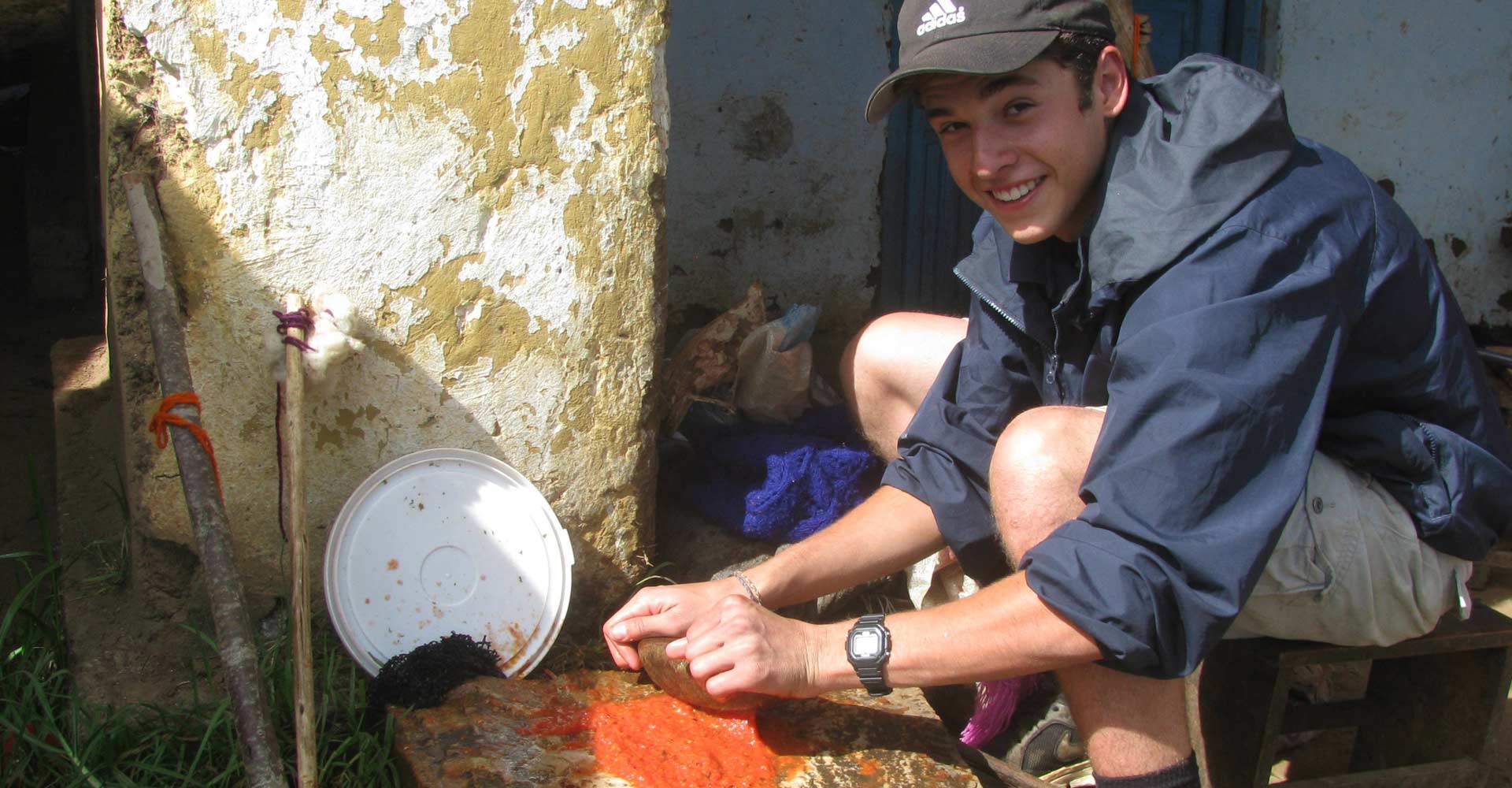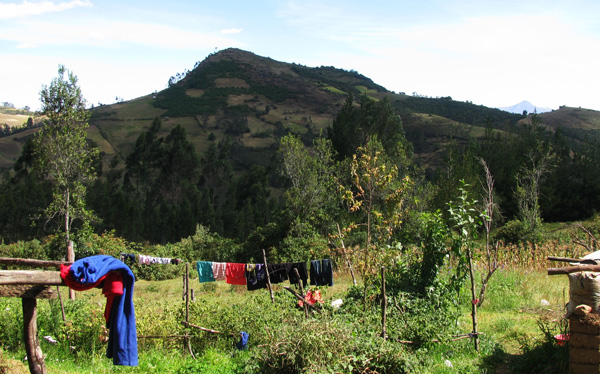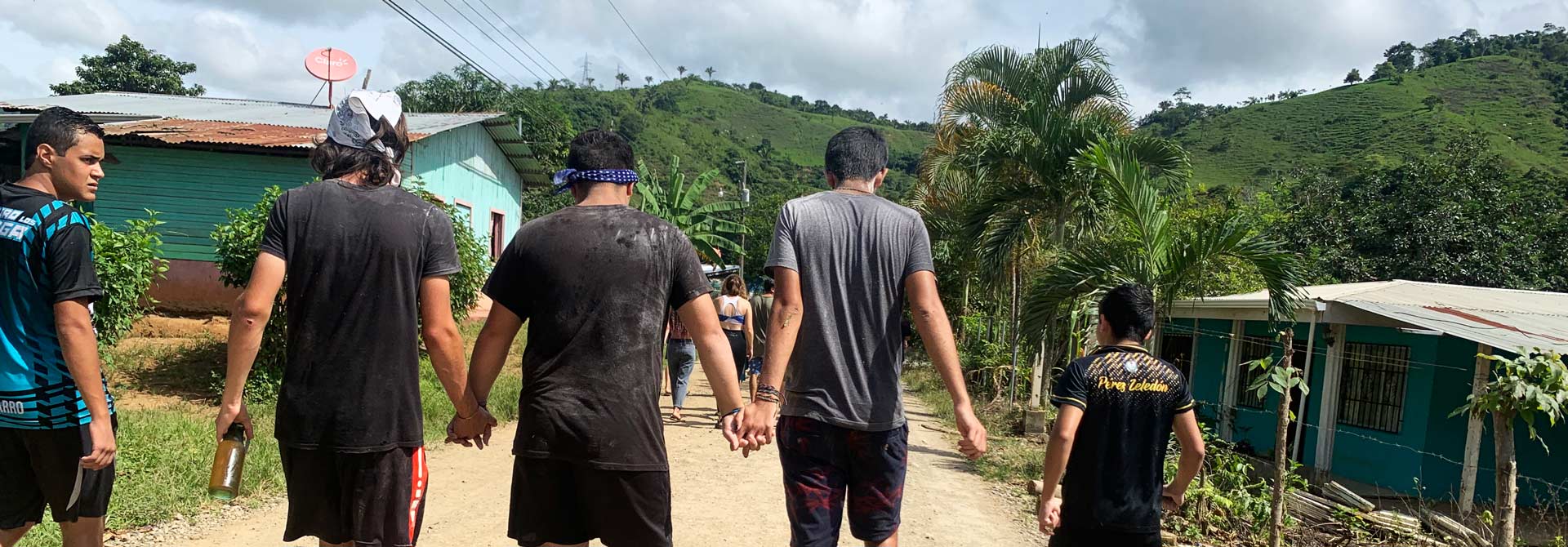Mateo (Peru ’14, Costa Rica ’19) was kind enough to share his statement of purpose for graduate school with AMIGOS. He cites his experiences with AMIGOS as being pivotal to developing his career interests and worldview. Read his statement of purpose below!
Mateo’s Statement of Purpose
In a world riddled with the disastrous environmental effects of collective short-sightedness, it is past time that we shift our blind faith in innovation towards small-scale collaborative efforts focused on designing sustainable solutions. My arrival at this conclusion, which has inspired my application to graduate school, is the most recent progression in a long journey that first began for me as a youth volunteer in rural Peru.
In the summer before my senior year of high school, I traveled to Peru as a volunteer for two months with Amigos de las Américas, an organization that leads youth exchange programs and places volunteers with families to participate in community-based initiative projects. Although this was my first exposure to the efficacy of asset-based community development, the most impactful experience was much more emotional than it was conceptual.
I left my host community to visit a small town located near an industrial gold mine. As our bus approached the town, I was greeted by a barren landscape of rotting trees overshadowed by massive peakless mountains, which served as stark reminders of the mountaintop removal process. I learned that the mining corporation overpowered much more than the local landscape and had polluted the only water sources for the surrounding communities. In addition, working conditions were poorly regulated and unsafe and many workers had developed stomach cancer and were fired when the mining corporation found out. With each story, I grew increasingly frustrated at the blatant injustices. How was it so easy for this large mining corporation to profit at the expense of the town? The community’s livelihoods and the environment had been completely destroyed, and for what?

Seeing and hearing about the pernicious effects of the irresponsibilities of the mining industry in Peru formed my personal goals of wanting to use my privilege to create positive change and benefit those less fortunate than me. However, it was clear that if I wanted to play a part in the solution, I would need to understand this complex environmental problem more deeply. For this reason, I pursued a Bachelor of Science in Environmental Studies at the University of California Santa Barbara.
In my first two years at UC Santa Barbara, I combined my studies in the fundamentals of chemistry, biology, physics, and calculus with courses in Environmental Studies. I applied this integrated education towards my goal of understanding the issues in the Peruvian highlands, and focused my upper-division studies on courses such as Environmental Chemistry, Environmental Toxicology, and Water Management. As I studied the transport of water, metals, and radioisotopes in the environment, I was simultaneously overwhelmed to understand the microscopic levels of intoxication that mining communities faced and inspired by my ability to understand and investigate them scientifically. I realized that I needed a holistic understanding of the problems afflicting Peru, and chose to investigate its history of mining.

In an independent research project, I investigated the mistreatment of indigenous Peruvians in the mercury mines of Huancavelica in the 16th and 17th century. I explored the long history of forced labor and exposure to noxious chemicals by the Spanish and recognized that these events reflect a recurring pattern: the prioritization of individual economic gain over the wellbeing of the social collective, notably that of native communities. This project evoked the feelings of frustration that had originally motivated
me to pursue an Environmental Studies degree and I knew that the more I could understand about the different aspects of this multifaceted crisis, the better equipped I would be to contribute to its dismantlement.
Through the coursework of my undergraduate education, I developed a strong scientific literacy and a fundamental comprehension of how natural systems interact with biological processes. My current academic goals center around learning the most effective ways to apply my technical skills to projects that require an extensive understanding of the interaction between societal infrastructure and human behavior and culture. I desire to learn more about how to merge the sciences and the humanities to form systems and strategies that emphasize long-term sustainability.
After graduating from UC Santa Barbara in 2019, I returned to Amigos de las Américas as a Project Supervisor for the project in Palmares, Costa Rica. I guided eight volunteers staying in four rural host communities through a program similar to the one I participated in in 2014, and I supported these volunteers by working with community leaders to identify and mobilize resources within the community.
It was extremely fulfilling for me to mentor these volunteers through the program and demonstrate the importance of living within a culture and speaking with the people when organizing a project.
During my time as a project supervisor, I practiced constructive problem-solving skills within the framework of asset-based community development while holding a leadership position in an organization that collaborates with locals to create lasting and tangible change. Anecdotes from San Rafael de Platanares, a town I worked with, confirmed my trust in this approach. A community member shared that a previous sewage tunnel project that AMIGOS volunteers had co-facilitated allowed their children to walk back home from school without having to submerge their feet in a flooded road on rainy days. The volunteers and host family I worked with in San Rafael that summer were also overjoyed to see their rain gutter project work seamlessly and prevent the house flooding that had previously occurred on their street.

My experiences in Costa Rica and Peru built on my studies and influenced me more profoundly than my coursework ever could. Through this learning process, I have integrated a few philosophies that lay the foundation for my professional goals. Our current social model that disregards the significant costs of short-term gain is deeply unsustainable and actively harmful to the overall human condition. Creating a process, such as mountaintop removal, that does not adequately address the potential harm of its byproducts will inevitably result in the poisoning of an uninvolved population, as I witnessed in Peru. At the global scale, this has culminated in a small population of affluent individuals facilitating processes that disproportionately harm the less-fortunate majority. Working in international development taught me that underscoring a community’s strengths and grasping the societal context of the obstacle they face by interacting with its people is one of the most effective ways to close this broad gap. Focusing only on the problems in a community is a stopgap at best and an exacerbating force at worst.
My professional goals involve expanding the practice of utilizing the human dimension as the primary facet of sustainable development and working alongside local people to identify and employ the assets available to them to design stable solutions. While much of Western culture promotes brash individualism and economic growth above all, my experiences forged my vision for a future that recognizes that development must be sustainable and responsible for it to be beneficial and where empathy and collaboration are central tenets. I believe that the more communities that are uplifted by their own efforts, the better equipped we will be as a society to shift our relationship with the planet and with each other from an exploitative to a mutually enhancing one.
Thank you, Mateo, for sharing your statement of purpose with us! Interested in joining a life-changing AMIGOS program? See all open projects here.

